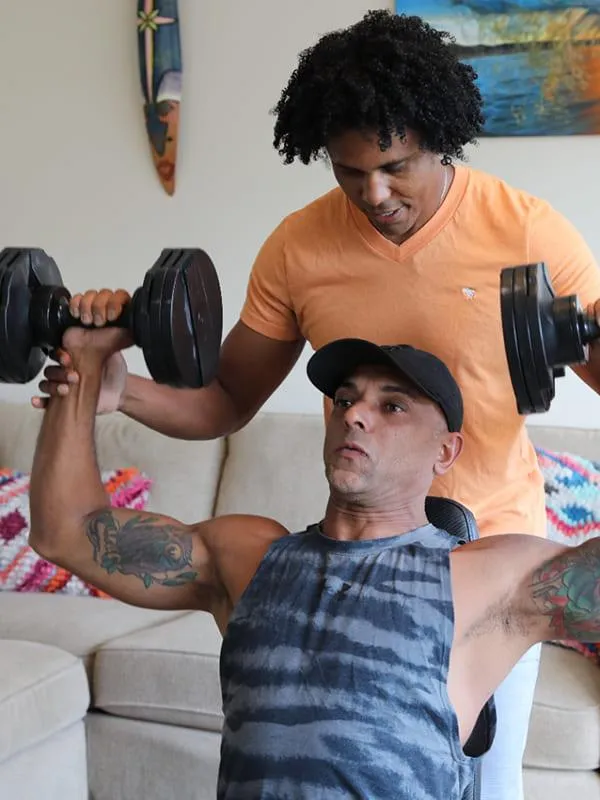About us

Push Beyond Limits, Build Strength, and Become the Best Version of Yourself Every Single Day.
PERSONAL TRAINER SAN FRANCISCO
Unlock your fitness potential with Coach Junior's comprehensive services. As one of the best personal trainer in San Francisco, I tailor workouts to your space to ensure comfort and convenience. You can also experience the invigorating outdoors with my specialized outdoor personal training sessions. As a dedicated running coach, I can elevate your running program. Or, if you seek guidance from a dedicated strength and conditioning coach to boost your strength, my expertise has you covered. I also have earned a strong reputation for weight loss training in San Francisco. Choose Coach Junior for a holistic, personalized, and effective path to a healthier you.
Hear From Our Satisfied Clients
Discover how our personalized training programs have helped clients achieve their fitness goals. Their success is our inspiration.
Frequently Asked Questions
What services does your personal training program offer?
Our program includes personalized workout plans, nutritional guidance, one-on-one coaching, and progress tracking to help you achieve your fitness goals.
Do I need prior fitness experience to join?
No, our plans cater to all fitness levels, from beginners to advanced athletes.
How often can I schedule training sessions?
You can schedule sessions based on your chosen plan, with options for daily, weekly, or flexible sessions.
Can I customize my training plan?
Yes, all our plans are tailored to meet your unique fitness needs and goals.
What equipment do I need for virtual training?
Basic equipment like dumbbells or resistance bands is recommended, but we also provide bodyweight exercises if no equipment is available.

High Performing Training
Committed to helping you achieve your fitness goals, we provide expert guidance and personalized support every step of the way.
Address
Address: 3014 Clay Street, San Francisco CA 94115
Phone: (619) 856-6960
Opening Time:
Mon–Fri: 6:00 AM – 9:00 PM
Saturday: 7:00 AM – 2:00 PM
Sunday: Closed
Email : [email protected]


